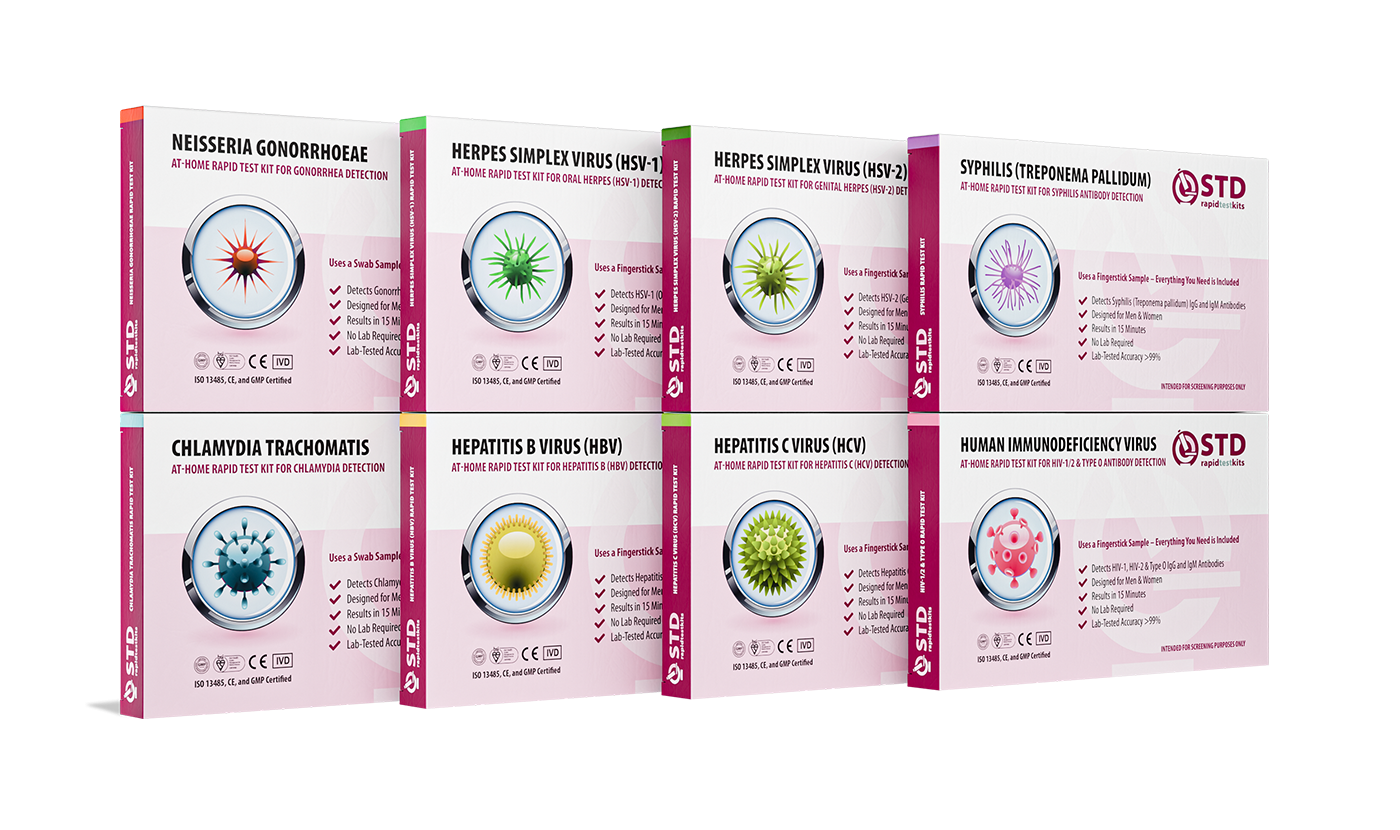What to Do If Your Partner Gets Mad When You Mention STD Testing
Understanding Why Disclosure Matters
Let’s start here, because understanding why this conversation is crucial makes the how a lot easier. Disclosure isn’t about confessing something shameful, it’s about creating the kind of relationship where honesty, safety, and agency are respected. And whether it’s a one-time hookup or the start of something long-term, those values matter.
Medical professionals universally agree: disclosure of a known STD before sexual activity is an ethical responsibility. In some regions, not disclosing certain infections like HIV or herpes before sex can carry legal consequences. But beyond the legalities, it’s about informed consent. Your partner has a right to know what they’re being exposed to, and you deserve to be seen as a whole person, not just a diagnosis.
If you’ve ever been ghosted, judged, or panicked at the idea of disclosure, you’re not alone. But not telling someone and then having them find out another way? That creates far more damage than the initial honesty ever could.

People are also looking for: Do all STD betrayals involve cheating?
When to Have “The Talk” (and Why Timing Is Everything)
Here’s the golden rule: tell them before any sexual contact that could transmit your STD. That includes oral, anal, vaginal, or even skin-to-skin contact depending on the infection. If the vibe is headed toward intimacy, the conversation needs to happen before clothes come off.
Some good moments to bring it up:
- Right after discussing protection or testing: “Since we’re talking about protection, I want to be honest about something…”
- Before a date where you expect things might get physical: “Hey, before we hang out tonight, can I talk to you about something important?”
- After getting recent test results: “I just got my STD panel back. Can we talk about testing and our health before we go further?”
You don’t owe anyone your medical chart on a first date. But if there’s any possibility of intimacy, disclosure is non-negotiable. It’s not about protecting their comfort, it’s about protecting both your rights to safety and choice.
What to Say: Scripts That Don’t Suck
Blanking out is normal. The brain short-circuits under shame and fear. That’s why having a few solid “scripts” in your back pocket can help you speak calmly and clearly, even when your heart’s racing.
Here are some grounded, honest ways to say it:
“I have something personal I want to share because I respect you and I’m interested in where this could go. I’ve tested positive for herpes and I’m managing it with treatment. It’s something I think we should talk about before things get physical.”
“I tested positive for gonorrhea a while ago. It’s something I live with, but I’m under treatment and know how to prevent transmission. I just want to be honest before we move forward.”
“This is awkward, but I care about your health and mine. I’ve had syphilis and I believe it’s really important to share that upfront.”
It’s okay to be nervous. It’s okay to fumble. But opening with respect, honesty, and clarity shows that you’re not just managing your health, you’re respecting theirs too.
Check Your STD Status in Minutes
Test at Home with Remedium7-in-1 STD Test Kit

 For Men & Women
For Men & Women Results in Minutes
Results in Minutes No Lab Needed
No Lab Needed Private & Discreet
Private & DiscreetOrder Now $129.00 $343.00
For all 7 tests
How to Handle Their Reaction (Even If It’s Not Great)
This part’s tough. You can’t control how someone reacts. Some people will be kind and curious. Some will need time. Others might get weird, or walk away. All of those responses say more about them than they do about you.
Prepare for a range of reactions:
- Supportive: “Thanks for telling me. Can you help me understand what this means for us?”
- Neutral/Curious: “Wow, I didn’t know much about that. Should I get tested too?”
- Confused or Scared: “Wait, so does that mean I’m already at risk?”
- Rejecting: “Sorry, I’m not comfortable with that.”
If someone ghosted you or judged you harshly, that’s their loss. You were honest. You protected them. You advocated for your own dignity. That’s powerful, even when it hurts.
Mutual Testing as a Next Step
One of the best ways to soften the weight of disclosure is to make it mutual. Invite them into the process. Normalize testing as a shared act, not a confession of guilt.
Say something like:
“How about we both get tested before taking things further? It just makes things safer for both of us.”
“If you’d like, we can use at-home STD test kits. It’s private, fast, and we’ll both know where we stand.”
Mutual testing helps reset the dynamic. It moves the conversation from “I have a thing” to “we’re in this together.”
Statistical Insights and Data
It’s easy to feel like you’re the only person on Earth who’s ever had to disclose an STD. But the numbers paint a radically different picture, one where you’re actually the norm, not the exception.
- 1 in 2 sexually active people will get an STD by the time they’re 25, according to the CDC.
- Over 20 million new STD infections occur annually in the U.S. alone.
- Genital Herpes affects 1 in 6 people between ages 14 and 49 in the U.S.
- HPV is so common that nearly all sexually active people will get it at some point if not vaccinated.
And when it comes to disclosure, a 2022 study published in Sexually Transmitted Diseases found that nearly 40% of people with a diagnosed STI delayed disclosure out of fear of rejection. That fear is real, but it’s also shared.
The more we normalize these conversations, the safer sex becomes for everyone. You’re not being dramatic. You’re being statistically responsible.

People are also looking for: Should I disclose past STDs even if I’m cured?
Expert Opinions and Case Studies
So what do actual doctors, therapists, and sexual health educators say about “The Talk”?
Dr. Lisa B. from the CDC’s STD division puts it like this:
“Disclosure isn’t a confession, it’s consent-building. It gives both partners the full picture so they can make healthy decisions. And in most cases, it leads to trust, not rejection.”
Case Study #1
“Sam,” 31, Gay Male
“I tested positive for Herpes two years ago. I was terrified to date again. But I started being upfront, usually before the second or third date, and guess what? Most people appreciated it. Some even shared their own status. It turned out to be less of a deal-breaker than I thought.”
Case Study #2
“Jasmine,” 27, Straight Woman
“I have HPV, and the hardest part was the shame. I used to cry before telling anyone. But eventually I wrote a little script I’d say in my head, ‘This doesn’t define me. It’s part of my health, not my worth.’ Saying it calmly helped the other person stay calm too.”
The takeaway? Your energy sets the tone. The more grounded and clear you are, the more likely your partner will meet you with respect.
Historical Context
The stigma around STDs didn’t appear out of nowhere. It’s been weaponized for decades through public health messaging, media, and morality policing. In the 1980s, HIV was framed as a death sentence, and a punishment, leading to decades of silence, misinformation, and shame.
But history is shifting. Thanks to advocacy and research, we now know:
- HIV is treatable, and undetectable = untransmittable (U=U)
- Herpes is manageable and doesn’t stop you from having fulfilling relationships
- HPV can be prevented with vaccination and monitored through Pap smears
We’re in an era where STDs don’t have to mean the end of dating, intimacy, or desirability. But the only way to finish de-stigmatizing is to keep telling the truth, out loud, to new partners, without shame.
Check Your STD Status in Minutes
Test at Home with Remedium8-in-1 STD Test Kit

 For Men & Women
For Men & Women Results in Minutes
Results in Minutes No Lab Needed
No Lab Needed Private & Discreet
Private & DiscreetOrder Now $149.00 $392.00
For all 8 tests
Future Trends in STD Disclosure
Let’s fast-forward. What’s changing about how we disclose and discuss STDs with partners?
- At-Home Testing is Normalizing the Conversation: No more awkward clinic trips just to prove you’re clean. STD Rapid Test Kits make mutual testing easy, discreet, and normal. Sharing results has never been easier.
- Dating Apps Are Catching Up: Apps like Grindr and OkCupid now allow users to list their STI status or encourage regular testing. Disclosure is becoming part of the pre-date discussion, not the post-bed bombshell.
- Gen Z Is Talking About It More: Younger generations are more likely to disclose, talk openly, and challenge the shame-based narratives that older generations lived with. That cultural shift is helping everyone.
Personal Stories or Testimonials
Sometimes, the best comfort comes from someone who’s been exactly where you are, sweaty palms, racing heart, wondering if this is the moment someone walks away.
Case Study #3
“Leo,” 34, Trans Masc
“I disclosed my HIV-positive status to a new partner last year. I told him I’m undetectable and explained U=U. He said, ‘Thanks for trusting me. That makes me feel closer to you.’ That response changed how I see myself. It’s not always like that, but when it is, it’s gold.”
Case Study #4
“Rina,” 22, Bi Woman
“I was diagnosed with chlamydia in college. I cried in the health center bathroom. But after treatment, I started telling people more openly. One guy thanked me for giving him the heads-up and said he respected me more because of it. We ended up dating for a year.”
These stories are proof: disclosure doesn’t always end in disaster. Sometimes it leads to deeper respect, more informed consent, and, yes, even connection.

People are also looking for: Can I get an STD from someone who looks clean?
Common Misconceptions
Let’s bust some myths that keep people locked in fear about disclosure:
“If I tell them, they’ll leave.”
Not everyone will. And if they do? Better now than after you’ve become more emotionally or physically vulnerable. Rejection sucks, but it’s survivable, and not a reflection of your worth.
“I’m dirty now.”
STDs are infections, not moral failings. You’re not dirty. You’re human, and you’re dealing with a health issue, like millions of other people.
“No one else talks about this.”
Yes, they do. Quietly. Online. With their doctors. With partners. This blog exists because you’re not alone, and you never were.
It’s time to rewrite the STD story, from whispered shame to proud, powerful honesty.
FAQs
1. How soon should I tell someone I have an STD?
Before any sexual contact that could involve transmission, ideally when the connection starts getting serious or intimate.
2. What if they freak out when I tell them?
Let them process. Stay calm. If they respond with panic or cruelty, that’s on them, not you.
3. Can I date if I have an STD?
Absolutely. Millions of people date, love, hook up, and build families while managing STDs. Honesty + protection = freedom.
4. What STDs require disclosure?
Any that are transmittable through planned sexual contact. This includes Herpes, HIV, HPV, Chlamydia, Gonorrhea, Syphilis, etc.
5. Do I have to tell a one-night stand?
Yes, if there’s a risk of transmission. Disclosure isn’t about how long you’ll know someone. It’s about consent.
6. Can I just use protection and not tell them?
That’s ethically dicey. Condoms reduce risk but don’t eliminate it, especially with skin-to-skin infections like Herpes or HPV.
7. How do I know if I’m still contagious?
Get tested. If you’re unsure, assume you could be and have the conversation. Better safe than sorry.
8. What if I haven’t been tested in a while?
Then test now. Use something like the Multi-STD Essential Kit – 6 Tests so you can speak from facts, not guesses.
9. Can I text my disclosure if I’m too nervous?
Yes. A clear, respectful message is better than silence. Just don’t ghost if they have questions, follow up with a real conversation.
10. Will they still want me after I tell them?
Many people will. Some won’t. The ones who stay are the ones who see you, not just your status.
Let's Get Serious
You’re not a health hazard. You’re a human being navigating connection in a world full of risk, pleasure, and complexity. Disclosing your STD status isn’t a punishment, it’s an act of love. For yourself and for whoever you choose to be intimate with. And guess what? You don’t have to navigate this alone or in the dark.
Start with knowledge. Start with honesty. Start with testing.
Sources
1. Conversation Tips for Disclosing STIs – CDC
2. How to Talk With Your Partner About STD Testing – Planned Parenthood
3. How to Share Your STI/STD Status – Healthline
4. How To Tell Your Partner You Have An STD – Pasadena UC
5. Partner Services for STD Partner Notification – CDC
6. NHS Advice: Informing Current and Past Partners – NHS
Written by M.D.F. Davids, reviewed by Dr. Alex Hart, MPH










